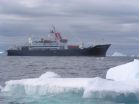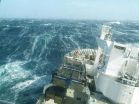How can we address the gap between climate science and policy?
2015-09-10
(Press-News.org) This news release is available in Japanese.
In this Policy Forum, Jonas Meckling et al. discuss the need to close the gap between climate science and policy, arguing that targeted policies and economic incentives are the answer, rather than broad carbon taxes. As policymakers convene at the United Nations Climate Change Conference in December, pinpointing the best policies is critical for a more sustainable future. In theory carbon pricing poses as an efficient solution, but this has yet to be seen in practice. As the authors point out, carbon regulation imposes costs on the powerful few (e.g., energy-intensive manufacturing firms) and provides dispersed benefits to the weak many (e.g., the broader public). Instead the authors emphasize targeted green industry policies that offer economic incentives and spur industry shifts. For example, Germany has implemented a feed-in law where owners of renewable energy systems are paid for per kilowatt they generate. These types of policies are effective for initiating a trend toward decarbonization because they offer concrete benefits to firms and households, are much easier to understand than carbon taxes, and can link climate policies with local issues, the authors say. Lastly Jonas Meckling et al. argue that the sequence of policy implementation is key: only once the targeted policies are in place should more broad and efficient policies such as a carbon tax be implemented. Following any international commitments to a greener future, the authors say, the real test will be the extent to which governments are capable of building and growing domestic coalitions that strengthen these commitments over time.
INFORMATION:
Article #1: "Winning coalitions for climate policy," by J. Meckling; N. Kelsey; E. Biber; J. Zysman at University of California, Berkeley in Berkeley, CA.
ELSE PRESS RELEASES FROM THIS DATE:
2015-09-10
This news release is available in Japanese.
Patients with metastatic melanoma who have benefited from a new type of cancer immunotherapy don't appear to share the same tumor-produced antigens, according to a new report by Eliezer Van Allen and colleagues. If the molecular targets for the immunotherapy differ from patient to patient, as this study suggests, it may be difficult to predict which patients will respond to the treatment. The drug, called ipilimumab, is part of a relatively new class of cancer treatments called immune checkpoint inhibitors. The inhibitors ...
2015-09-10
This news release is available in Japanese.
The Southern Ocean has increased its uptake of atmospheric carbon dioxide again, after showing signs of slowing uptake in the 1990s, according to a new report from Peter Landschützer and colleagues. The Southern Ocean is a huge player in carbon sequestration, accounting for up to 40% of oceanic uptake of atmospheric carbon dioxide. When earlier studies showed the Southern Ocean's carbon sink weakening, the findings raised concerns that the planet might lose a powerful way to remove the growing amounts ...
2015-09-10
Breathe in, breathe out, in, out... Like a giant lung, the Southern Ocean seasonally absorbs vast amounts of carbon dioxide (CO2) from the atmosphere and releases it back later in the year. But on an annual average the seas surrounding Antarctica absorb significantly more CO2 than they release. Most importantly, these seas remove a large part of the CO2 that human activities emit into the atmosphere, thereby slowing down the growth of this greenhouse gas in the atmosphere, lessening the rate of climate change. Although the Southern Ocean represents no more than a quarter ...
2015-09-10
Berkeley -- To speed up progress in tackling climate change, policymakers need to build political support by investing in clean-energy industries rather than first penalizing polluters, according to a new policy paper by researchers at the University of California, Berkeley.
In the paper, to be published Thursday, Sept. 10, in the journal Science, a multidisciplinary team of environmental, political and legal experts finds that instead of emphasizing cap-and-trade schemes and penalties on greenhouse gas emissions - strategies considered to be most efficient by many economists ...
2015-09-10
MENLO PARK, Calif. -- Some of the inner workings of Earth's subduction zones and their "megathrust" faults are revealed in a paper published today in the journal Science. U.S. Geological Survey scientist Jeanne Hardebeck calculated the frictional strength of subduction zone faults worldwide, and the stresses they are under. Stresses in subduction zones are found to be low, although the smaller amount of stress can still lead to a great earthquake.
Subduction zone megathrust faults produce most of the world's largest earthquakes. The stresses are the forces acting on ...
2015-09-10
Researchers from the MRC Centre for Developmental Neurobiology (MRC CDN) at the Institute of Psychiatry, Psychology & Neuroscience (IoPPN), King's College London, have discovered a new molecular 'switch' that controls the properties of neurons in response to changes in the activity of their neural network. The findings, published in Science, suggest that the 'hardware' in our brain is tuneable and could have implications that go far beyond basic neuroscience - from informing education policy to developing new therapies for neurological disorders such as epilepsy.
Computers ...
2015-09-10
WASHINGTON, D.C. - Since 2002, the Southern Ocean has been removing more of the greenhouse gas carbon dioxide from the atmosphere, according to two new studies.
These studies make use of millions of ship-based observations and a variety of data analysis techniques to conclude that that the Southern Ocean has increasingly taken up more carbon dioxide during the last 13 years. That follows a decade from the early 1990s to 2000s, where evidence suggested the Southern Ocean carbon dioxide sink was weakening. The new studies appear today in the American Geophysical Union ...
2015-09-10
A prospective longitudinal study of U.S. Marines suggests that reduced heart rate variability - the changing time interval between heartbeats - may be a contributing risk factor for post-traumatic stress disorder (PTSD). The findings are reported in the September 9 online issue of JAMA Psychiatry by researchers at the University of California, San Diego School of Medicine and Veterans Affairs San Diego Healthcare System.
Even at rest, the normal rhythm of the heart fluctuates, reflecting influences and changes in other parts of the body. Generally speaking, the greater ...
2015-09-10
Imagine the scientific discoveries that would result from a searchable online database containing millions of plant, algae, and fungi specimen records. Thanks to a new set of workflow modules to digitize specimen collections currently preserved in herbaria, something like that might be within reach. The modules are provided by the National Science Foundation's (NSF) Integrated Digitized Biocollections (iDigBio), which is facilitating a collective effort to unify digitization projects across the nation.
"North America's herbaria curate approximately 74 million specimens ...
2015-09-10
COLUMBUS, Ohio - Would a color by any other name be thought of in the same way, regardless of the language used to describe it?
According to new research, the answer is yes.
A new study examines how a culture of nomadic hunter-gatherers names colors, and shows that they group colors into categories that align with patterns of color grouping evident in 110 other world languages.
This study population - the Hadza people of Tanzania - has relatively few commonly shared color words in its language. During the study, the most common response by Hadza participants to a ...
LAST 30 PRESS RELEASES:
[Press-News.org] How can we address the gap between climate science and policy?

